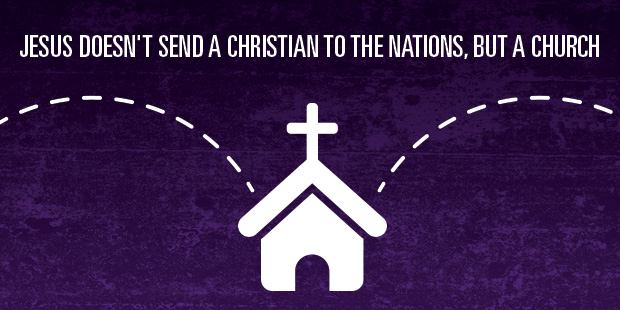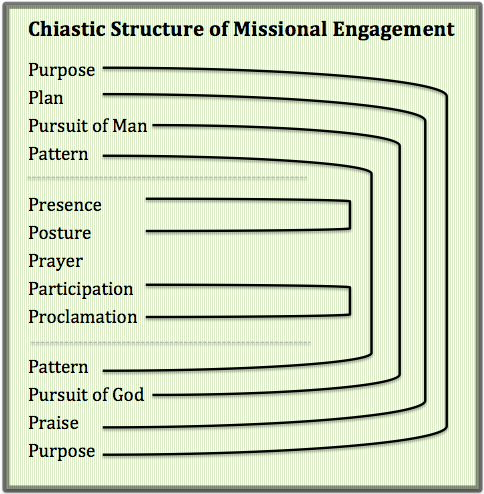
Jesus Doesn’t Send a Christian to the Nations, But a Church
The Great Commission was given to a community.
Western readers have tended to read the Great Commission passages (especially Luke 24 and Matthew 28) in light of the autonomous individual. We interpret the commissioning scenes as tasks assigned to individual Christians.
But a proper focus on the corporate dimension of these accounts helps us understand the commissionings in light of the identity Jesus bestows upon a community.
Jesus does not send a Christian to the nations, but a church.
A “Fulfilling” People
By seeking and saving the lost in His ministry, Jesus has formed a new people, the true Israel, who will finally fulfill God’s purposes in the world, in light of God’s own work in fulfilling the promise He made to Abraham. Jesus sends a community to the world, in fulfillment of his work in Israel.
A Foreshadowed People
The communal witness of the church is foreshadowed and promised in the Old Testament, and it sees its arrival as the Holy Spirit descends to fulfill God’s promise in the New Testament. To interpret the commissioning texts as applying only to individuals is to miss the rich, biblical overtones throughout the Scriptures that envision a community serving as salt of the earth and light of the world.
A Gospel-Formed People
The church is united as a witnessing community, but it’s the gospel we witness to that constitutes our identity. After all, the gospel is centered on the Sent One who witnesses to the Father. The person and work of Christ make possible the existence of this witnessing body.
A God-Exalting People
The terminology of witnesses in Luke 24 likely echoes the Lord’s words to Israel in Isaiah 43:10-12:
“You are My witnesses” – this is the Lord’s declaration – “and My servant whom I have chosen, so that you may know and believe Me and understand that I am He. No god was formed before Me, and there will be none after Me. I, I am Yahweh, and there is no other Savior but Me. I alone declared, saved, and proclaimed – and not some foreign god among you. So you are My witnesses” – this is the Lord’s declaration – “and I am God.” (HCSB)
Don’t miss the high Christology on display here. By adopting the same words of Yahweh to Israel, “You are my witnesses,” Jesus is associating Himself with God, and He is associating his followers with Israel.
The implication is that Jesus is the embodiment of Yahweh and His followers are the true Israel who will finally fulfill the task given to God’s people. Witness flows from knowing Jesus.
A Spirit-Empowered People
There is an eschatological dimension to the corporate nature of the “witnesses.”
It is true that Acts 1:8 focuses on the geographical expansion to the ends of the earth, not the eschatological promise of Christ being with the disciples to “the end of the age” (Matthew 28:20). Still, there is a strong element of eschatology in Acts 1:4-8, since Christ’s last words in Acts are preceded by a question from the disciples regarding the timetable of the kingdom’s restoration to Israel. Their desire to know the timing of God’s kingdom coming in its fullness is rooted in Jewish eschatology. When Jesus brushes off their question, He does not do so because it has no validity, but because He desires to focus on what the disciples are to be (and therefore do) in the meantime.
The disciples will indeed be an eschatological people, not because they know the signs and the times, but because they are indwelled by the Spirit who empowers their witness to the ends of the earth. John Stott is right to describe the church as the “pilgrim people of God.”
The corporate witness of the church is missionary in its purpose and eschatological in its framing.
Presence and Proclamation
The most concentrated power of witness is in the corporate, common life of the church united on mission for Christ. The church that is truly “present” in a community will necessarily proclaim the gospel. The communal identity of the church is essential as an undergirding of our proclamation as we seek to fulfill the Great Commission.
Read more from Trevin here.

Tags: Evangelism, Great Commission, Multiplication, Trevin Wax































